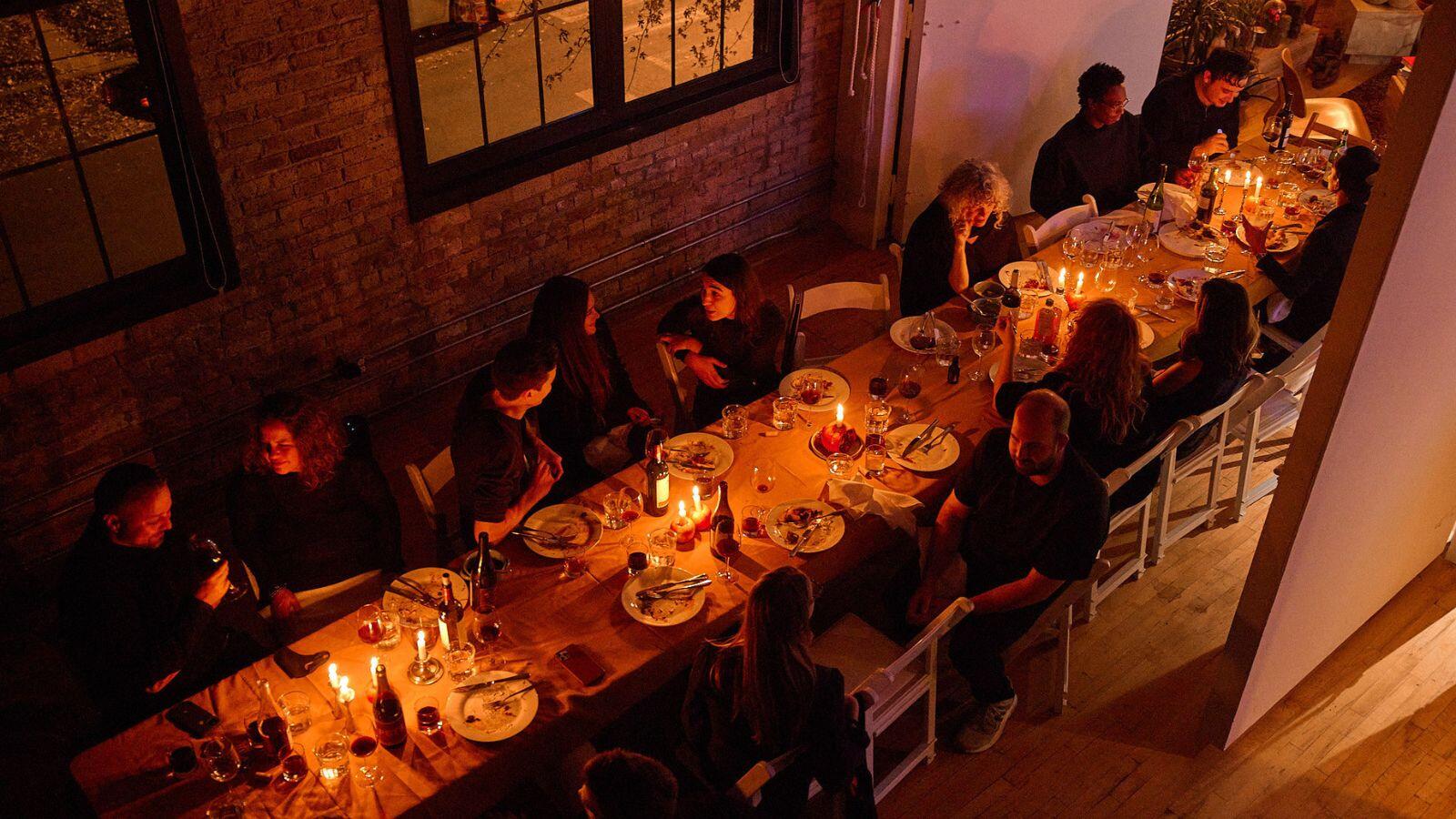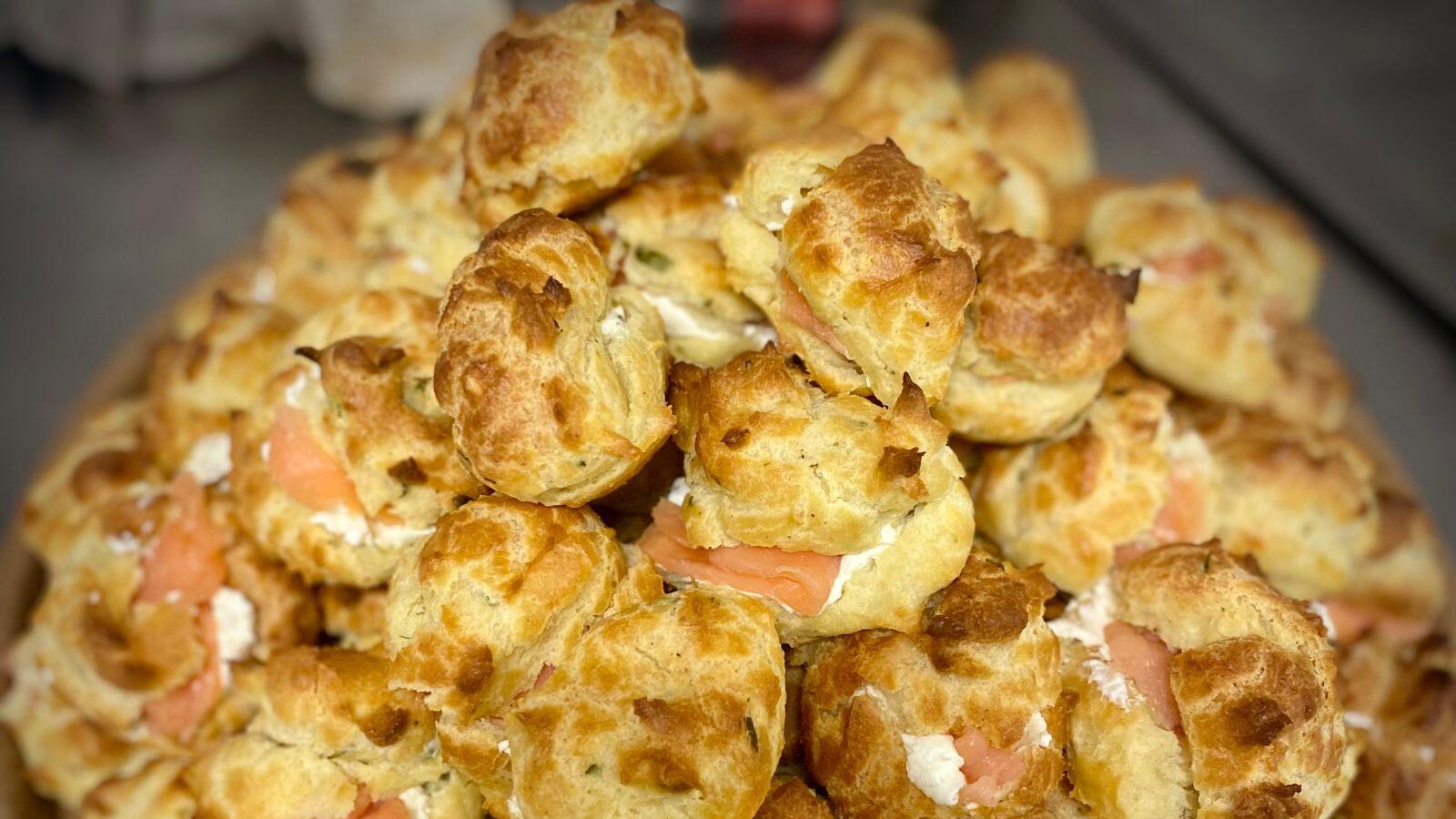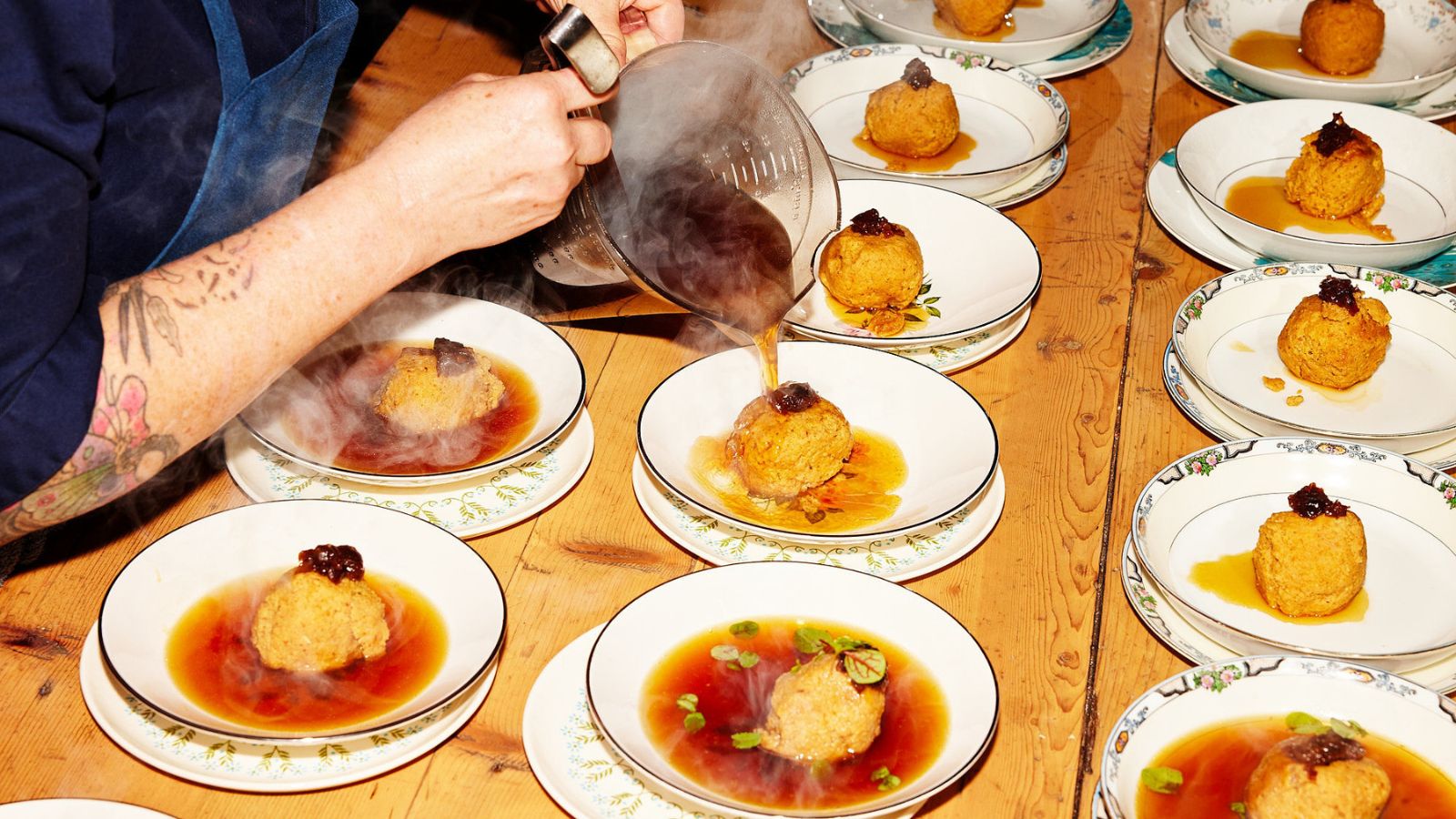From New York cheesecake rangoons to Reuben hot pockets, Chicago’s chefs are channeling their creativity and curiosity to explore the diversity of Jewish food. Whether inspired by a pandemic pivot, an interfaith love story or a desire to gather and explore the foods of the Jewish Diaspora, these pop-ups are bringing people together in a delicious way. Here are three to check out immediately:
Diaspora Dinners
At Diaspora Dinners’ challah-baking classes, co-founder Dylan Maysick leads the baking. While the dough rises, his wife, Rachel Ellison of Bat Sarah Press, a contemporary Judaica online store, leads a challah-cover workshop.
“There’s a business component to that, but it also feels good to be a part of and support all of those rituals,” Maysick said.
Maysick was raised “culturally Christian” and converted to Judaism through a Conservative synagogue, where he feels at home. Before he got to know Ellison and her family, his knowledge of Jewish food was “10% of the greatest hits of Ashkenazi cuisine.” Keen to explore wider Jewish cuisine, and having shuttered his wholesale baking business, Maysick, in collaboration with Ellison and their friend Chris Reed, launched Diaspora Dinners, a Shabbat dinner series focused on the history and food of the Jewish Diaspora.
The Nosher celebrates the traditions and recipes that have brought Jews together for centuries. Donate today to keep The Nosher's stories and recipes accessible to all.
The series kicked off in 2017 with a “Jewish Christmas” theme, mixing takes on Ashkenazi staples and Americanized Chinese food. The collaboration with Reed inspired one of their first iconic, playful creations: a New York cheesecake pastry with a sour cherry sauce echoing the (notably treyf) crab rangoon and sweet-and-sour dipping sauce.
“We try to be mindful of how we want something to feel, and make sure that the dishes aren’t just things that we thought would be delicious, but we try to thematically draw from that,” said Maysick.
They also approach the food of the Jewish Diaspora from specific historical lenses. One of their first dinners focused on the history of Jewish food in the American South, inspired by the food of Jews living there and the African-American cooks adapting Southern staples for a kosher diet, like baked beans made from pastrami instead of the traditional pork.
Diaspora Dinners has grown from small pop-up dinners to include pickup Shabbat dinners (available for preorder on Tock), classes and catering larger events and holidays.
Challah by Eye Eaters

At Challah — an intimate, chef-driven Shabbat dinner series hosted by Chicago creative studio and society Eye Eaters — everyone wears all black (which they feel adds to the experience), seated around a communal table. The guest chef shares stories that inspired the elaborate dishes, and guests unwind and connect while noshing on creative takes on classic Jewish dishes and ingredients. Is there schmaltz? Oh, you bet there’s schmaltz.
Challah is just one of many gatherings Eye Eaters founders Jenna Liberman and Paul Octavious host, and much of Eye Eaters’ work is around connection, spotlighting different voices, culture and identity. Octavious encouraged Liberman to create an event reflecting her Jewish identity, and the obvious choice for her was using Shabbat as a way to delve into Jewish culture.
“It allows for good conversation and connection,” Liberman said.
Challah launched in November 2021 with a dinner at the Eye Eaters studio. The menu was created by Tamar Fasja Unikel and Elena Vasquez Felgueres, the team behind Mexican Jewish bakery Masa Madre. Since then, chefs Lee Wolen (Boka, Alla Vita), Mindy Segal, Zach Eder and Mary Eder-McClure (Galit), and Dana Cree (Pretty Cool Ice Cream) have created intricate, playful menus for the series.
“It’s a lovely prompt for these chefs who are Jewish, culturally, religiously or both,” Liberman said. “It’s fun for them. They can do whatever they want, and 50% of the people coming have never been to a Shabbat dinner.”
The chefs have no parameters for coming up with their menu outside of creating four courses, and that each course should come with a story. The team from Galit showcased Middle Eastern flavors with tongue-in-cheek playfulness, serving labneh with Manischiewitz and celery. Segal took the name quite literally, including laminated challah dough in every dish.
Octavious and Liberman seek to make sure the Challah dinners are a welcoming, affirming space to guests and participating chefs. Liberman says a lot of Jewish programming can be homogeneous, and they wanted to ensure that this would not be a space where Octavious would be the only Black person in the room. So far, the response from the community has been positive.
“We started it before this most recent wave of antisemitism,” Liberman said. “Having the dinner on the books when things felt really heated, and bringing many Jewish people and many people who had never been to a Shabbat all together, felt like our small way of doing what we could.”
To secure your spot at the next table, follow Eye Eaters on Instagram or sign up for their newsletter — events typically sell out within hours, though, so you’ll have to be quick.
Schmaltz & Vinegar

Jesse Williams’ love of Jewish comfort food can be seen in her creative dishes, like a flaky, savory Reuben Hot Pockets and crispy mushroom kreplach kissed with chili crisp, as well as on her arm, where she sports a tattoo of a corned beef sandwich (rye, yellow mustard).
A veteran of popular Chicagoland restaurants like Logan Square pioneers Lula Cafe, Floriole and Skokie-based Kaufman’s Delicatessen, Williams stepped away from restaurant work when she had her first child. As she was beginning to look for work again, the Covid-19 pandemic began. After a string of odd jobs trying to make ends meet in a tough industry, she decided to try launching something on her own.
“I had no startup capital,” she said. “I had nothing except my name and I thought maybe I’ll get lucky. There’s not a lot of fresh Jewish caterers out there.”
From that first catering job for local congregation Mishkan in 2020, Williams has grown her business, Schmaltz and Vinegar, bringing her creative Jewish comfort food to kiddushes, pop-ups and farmers markets all over Chicagoland.
“I really feel like the flavors are universal, even though a lot of the things I cook are from an Ashkenazi Jewish perspective,” Williams said.
Williams finds what is in season and available locally, and applies those flavors into Jewish dishes, like combining confit green garlic and goat cheese in a savory rugelach. She says there is sometimes a perception of North American Ashkenazi food, particularly kiddush staples, as dated or repeating the same flavors (such as raisins in rugelach), but there’s so much room to innovate.
“I think there’s so much potential with this kind of food,” she said. “I love putting strawberries in kugel. Why wouldn’t you?”
Follow Schmaltz & Vinegar on Instagram for more information about upcoming pop-ups and other events around Chicago, as well as farmers markets this summer.



